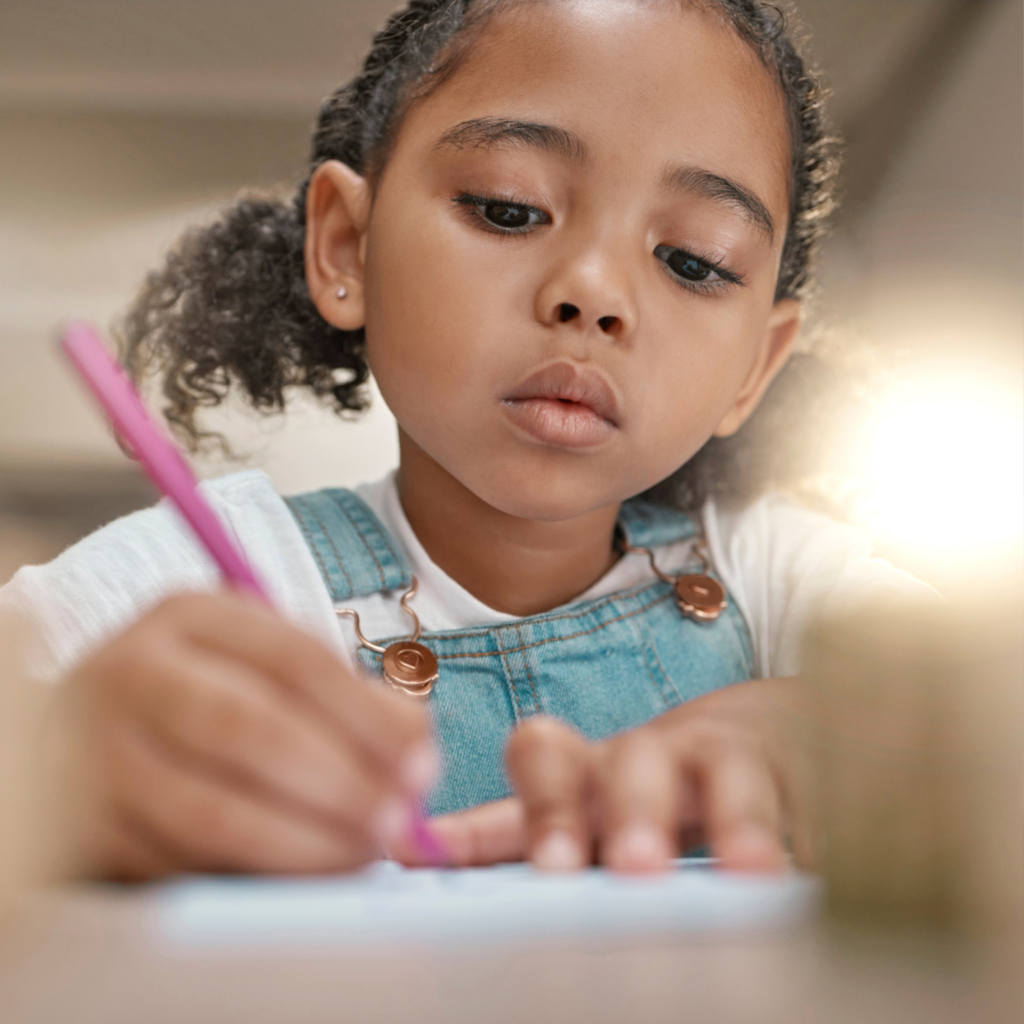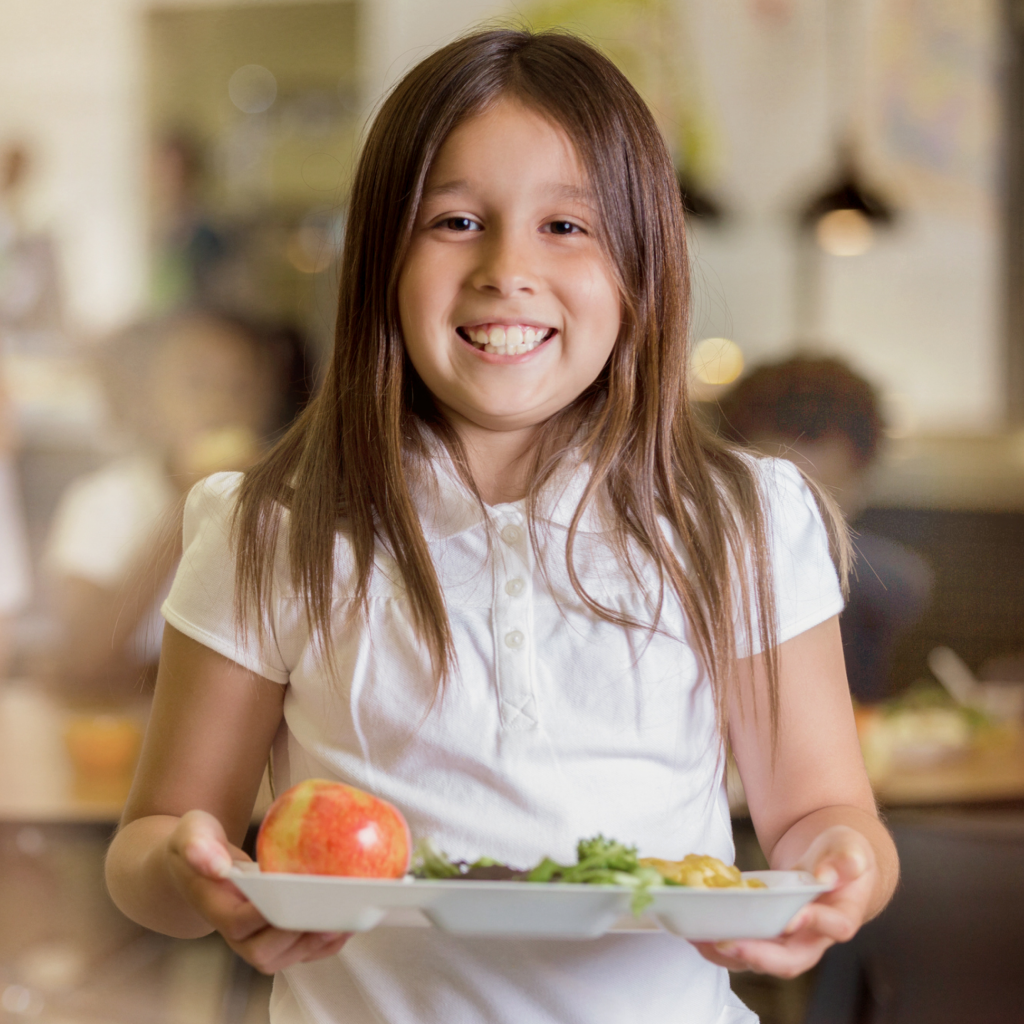
Food for Thought: Improving Education with Nutrition
Most of us have felt “hangry” before – the grumpiness that comes with being hungry. While the term is often used in fun, it’s based in a simple fact: when you’re hungry, it’s hard to function, let alone do your best work.
That’s what inspired the launch of Youth+Us partner, Regina Food for Learning (RFFL), nearly 35 years ago. To date, the organization has provided more than 3 million nutritious meals to young people in schools around Regina, promoting better physical and mental health. This, in turn, leads to better academic performance and increased opportunities in the future.
Breaking the Cycle with Better Meals
Kelley is a 30-year veteran of alternative education, spending much of that time with a program for at-risk youth, aged 11 to 15, at eastern Regina’s Victoria Campus. “This is their last stop in the Regina Public Schools, and they have to earn their way out of these programs,” she explains. “They’re not able to attend a regular school, and this provides a very structured day, where they work one-on-one with the staff.”

With such a long career alongside these kids, she’s seen firsthand the difficult circumstances they work to overcome. “I have marveled at the resilience of these young people for the struggles that they face at home or in the community. They come to school every day because they see that we want success for every one of them.”
The provided meals from RFFL lay a foundation for that success. “Probably 95% of them…may not have enough food at home to get breakfast. How can we expect them to learn and improve if they don’t even have food at the beginning of the day?”
How Regina Food for Learning Feeds Nearly 1,000 Kids a Week
Lin is the Executive Director at RFFL, and a retired Special Ed. Assistant herself. She now helps deliver meals and snacks to classrooms where they are needed most. “The teachers or lunchroom supervisors will notice hungry children, coming to school without meals,” she says. “They’ll talk to their admin, who applies with us. It’s often a program like this [one at Victoria Campus], where they’ve got 14 kids who might not have eaten since the day before.”
From there, the program is customized for what the school needs. “Maybe they need breakfast and lunch, or maybe a snack for the whole school every day. It depends on what the need is, what the school is capable of preparing, and our capacity and funding.” Even though they can’t fill every need, they do everything in their power to help. “Whatever it is we can possibly do, we do it.”
“The food is critical. Without it, you’re not going to have learning. You’re not going to have people that go on to contribute to the future of society. Food is the key ingredient. I can’t say enough about how important it is to the learning environment.”

Better Meals Mean Better Opportunities
Kelley appreciates that the program is not just a great source of nutrition, but also how it respects the kids, too. As Lin explains, “Maybe the kids will come down in the morning before school and get a lunch bag, so they can sit and eat with the other kids later. We try to make it respectful…it’s important to us that the kids feel safe. They come to school because they know they’ll get a meal in a safe place.”
Kelley is quick to agree. “Food is all about security, and this school is about having a safe place to learn. By blending the two together, it’s been a great relationship between these programs. We’re very lucky.”
Both Kelley and Lin have noticed that students who receive regular meals often transform into someone totally new. Lin tells a story about a young girl who had poor attendance and bad behavioural habits, causing the faculty to struggle with her education. “Then they started feeding her breakfast when she showed up,” Lin recalls, “and her attendance is almost perfect now. She literally skips down the hallway after she has her meal.”
Kelley goes on. “It affects not only learning, but behaviour. It all goes together. I challenge you to go without supper tonight and see how well you perform at work tomorrow, but we’re expecting these kids to sit quietly and pay attention? You can’t, when all you can think about is food.”
Food for the Future
Without the RFFL program, Kelley can only imagine how much harder it would be for the kids. “As soon as they get here on Monday morning, they’re already asking about cereal and snacks,” she says. “You can see that they’re hungry – maybe the last time they ate was on Friday. The food is critical. Without it, you’re not going to have learning. You’re not going to have people that go on to contribute to the future of society. Food is the key ingredient. I can’t say enough about how important it is to the learning environment.”
“I wish the RFFL program didn’t have to exist,” she adds. “But I’m so glad it does.”
*Kelley and her students not pictured
